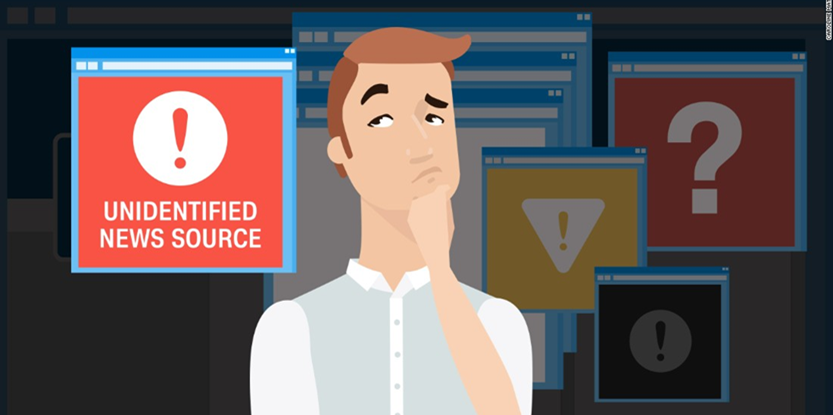How to know which websites to trust

Can you tell the difference between a real website/news story and a made up one? Maybe not.
In the past, watching the news on TV; reading a newspaper and listening to the radio were the only ways to stay up to date with what was going on in the world – and we would always rely on these sources telling the truth about events.
Broadcasters like the BBC or Sky have staff that check the facts in their news stories. But anyone can write news articles, make websites, and share them on social media – this has led to the phenomenon called ‘fake news’. And it’s not just the ‘news’ that people can lie about, there have also been reports of people setting up fake online funding pages for victims of crime when in fact they are just pages to trick people into giving money.
Some types of fake news can look real and this can make us think they’re true. In some cases people can take a popular newspaper logo and place it on a fake news story to make it look genuine. In other cases fake news may be easier to spot. Most of the time, fake news stories have a mix of truth and lies to make the whole story seem more believable.
How to spot fake news/fake websites
If you want to try to make sure that you don’t get caught out by fake content, there a few things the BBC suggests you can look out for.
Ask yourself:
- Has the story/information been reported anywhere else?
- If it’s a news story, is it on the radio, TV or in the newspapers?
- Have you heard of the organisation that published the information?
- Does the website where you found the information look genuine? (meaning it doesn’t look like a copycat website that’s designed to look like another genuine website)
- Does the website address at the very top of the page look real? Is the end of the website something normal like ‘.co.uk’ or ‘.com’, and not something unusual, like ‘com.co’?
- Do the photos or videos look normal?
- Does the information sound believable?
If the answer to any of these questions is ‘no’, you might want to check it out a bit more, before believing everything the website says. If you’re at all unsure, speak to an adult that you trust about the website to find out a bit more about it.
Ask yourself these questions about this website – does it seem like a reliable source of information to you? Why or why not? You can let us know what you think by emailing lscptrain@solihull.gov.uk with the subject ‘my views.’
